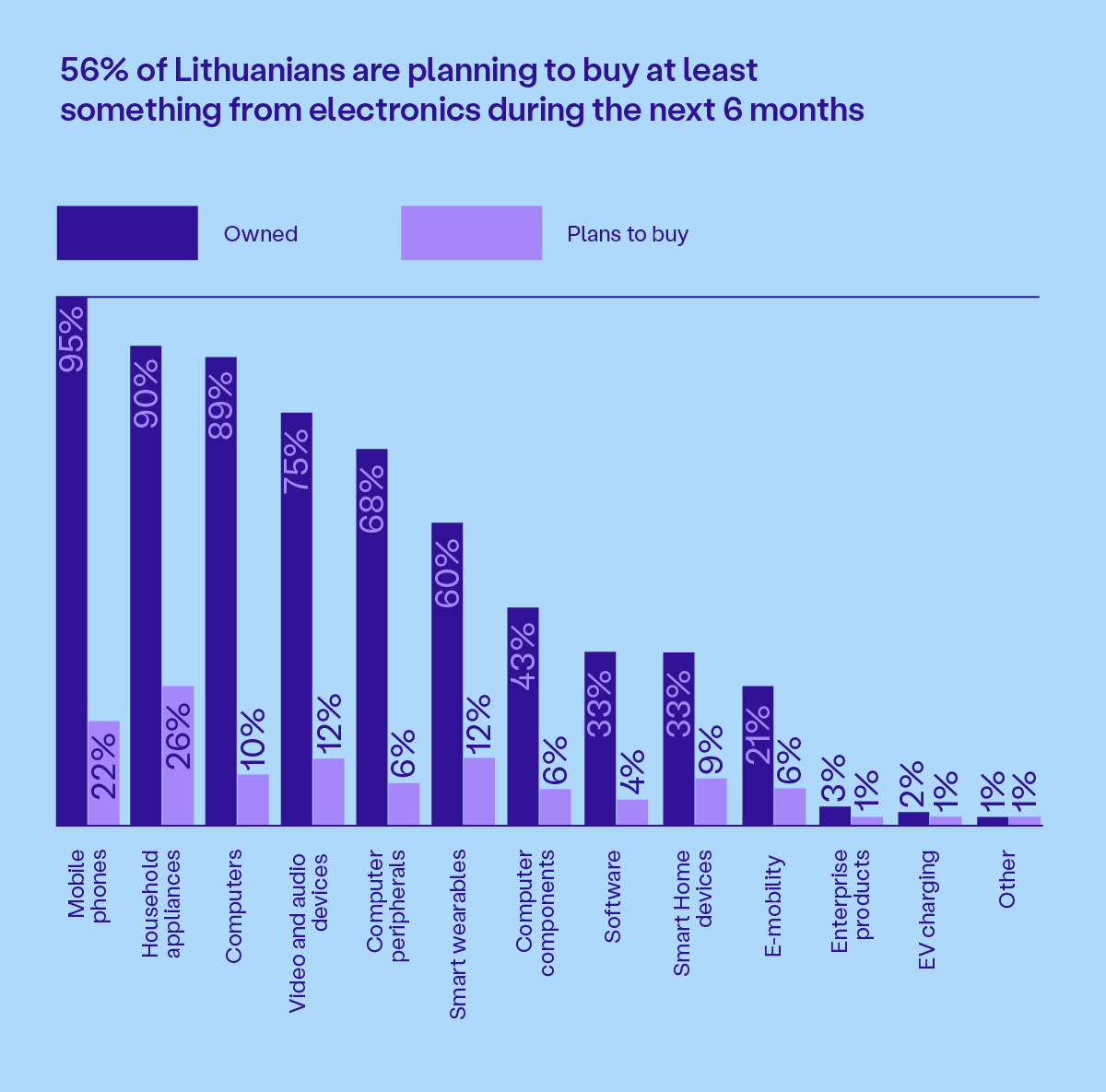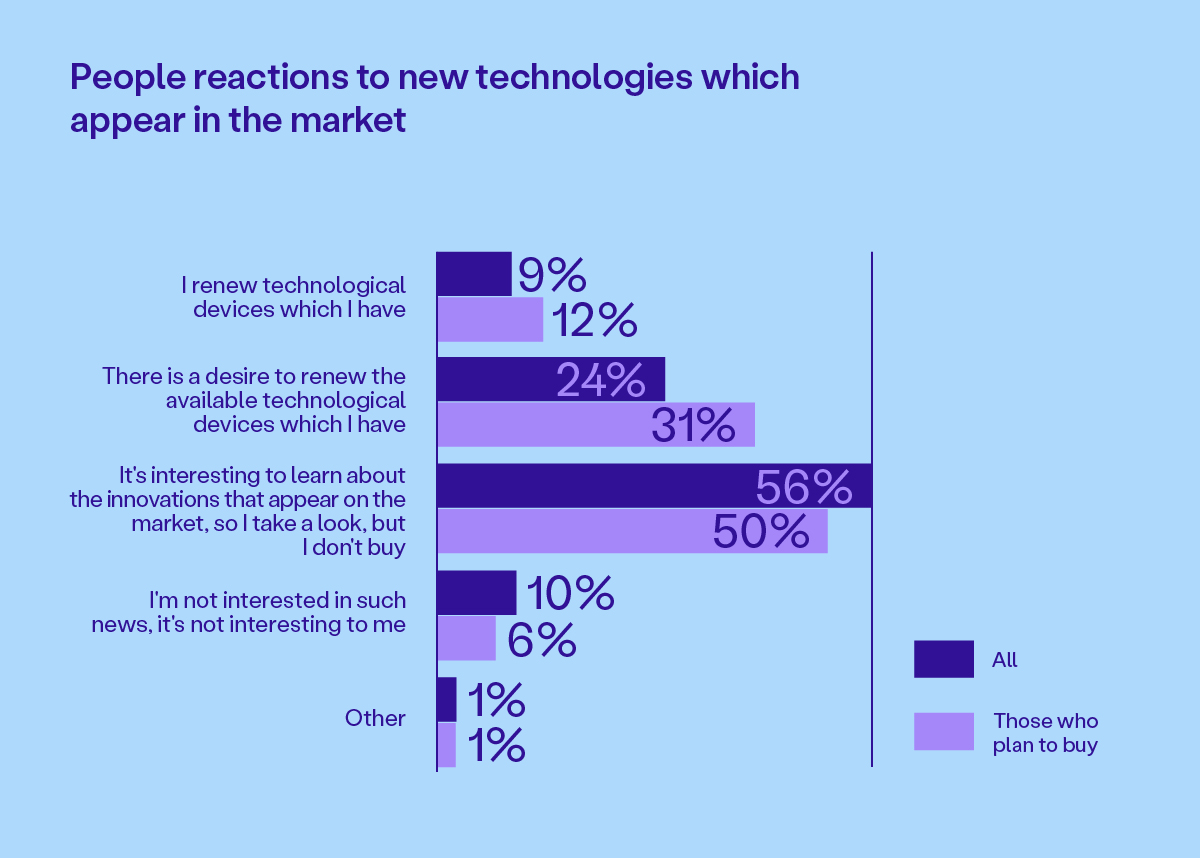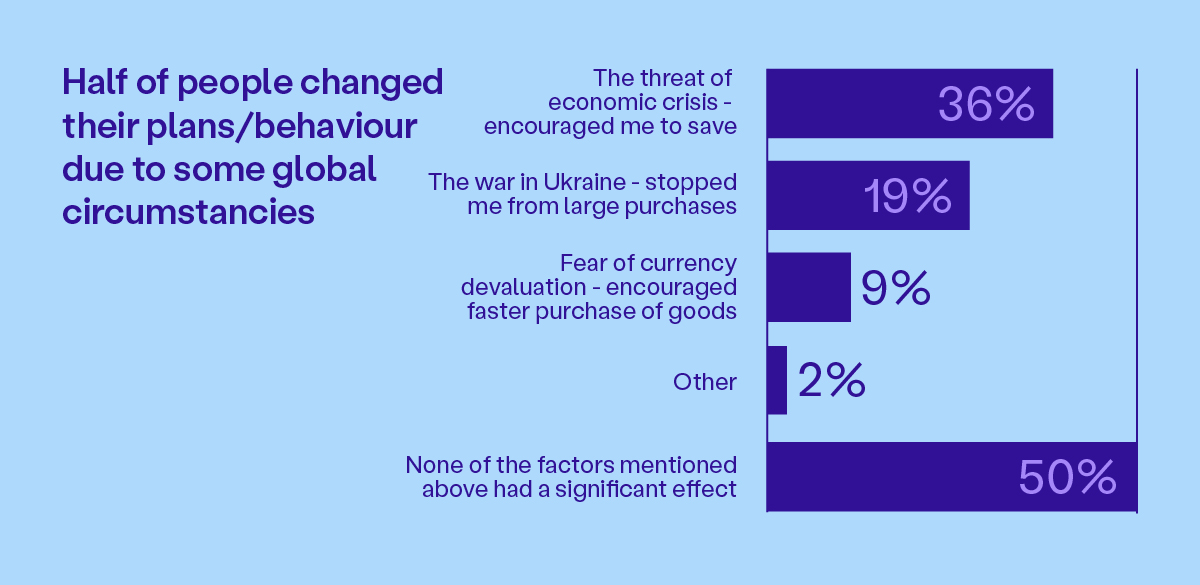- Article
- November 28, 2022
Survey: Despite Environmental Threats, Lithuanians Would Not Adjust Their Plans to Buy Electronics

Even though the public is actively talking about economic threats, a possible recession, and the ongoing war in Ukraine, more than half of Lithuanians plan to buy at least one electronic device in the next six months. The latter trend was highlighted by the Lithuanian population survey carried out by the ACC Distribution in September this year.
The survey asked how the recent crisis and war events have affected their plans to purchase technological equipment, which types are most frequently purchased and used, and to what extent the public is interested in the latest technologies on the market.
The survey showed that one in two respondents plan to purchase at least one electronic device in the next six months. Among the electronics in the shopping basket of the Lithuanian population, small and large household appliances, such as a fridge, dishwasher, stove, or any other household appliance, were the most frequently mentioned (26%), followed by mobile phones (22%) and computers (10%). The least often identified planned electronic equipment purchases were electric cars (6%) and their accessories (1%).

“It is not surprising why household appliances are one of the population’s most popular categories of electronic devices. These electronic devices not only make household life easier but can sometimes replace some beauty, health, and cooking services. Therefore, with the rapid increase in the cost of services, it is likely that home appliances will continue to be the first choice of the population among all electronic devices,” says Andrius Čekanavičius, head of sales at ACC Distribution.
When asked which electronic devices they use most often, Lithuanians indicated mobile phones (95%), home appliances (90%), computers (89%), and video and audio equipment (75%). According to Mr Čekanavičius, the emergence of computers among the TOP3 most used electronic devices was mainly influenced by the pandemic and the introduction of workstations at home. “Even though the pandemic has receded, working from home remains an important element of a modern workplace. More and more employers are opting to set up workspaces in employees’ homes. ”
More than half of the population is actively interested in technological innovations
According to the survey, Lithuanians are actively interested in technological innovations and new products appearing on the market. However, they do not intend to buy them immediately — as many as 56% of the respondents noted. And most of the latter are planning to buy something from the latest technology releases in the next six months. Only one in ten respondents react proactively to new developments and buy the latest devices as soon as they appear on the market. 24% of the respondents indicated that they would like to upgrade their technological devices. Only 10% of the respondents indicated that they have no interest at all in technological innovations.

“The survey shows that although Lithuanians are really active users of electronics and are quite interested in innovation, they do not tend to update their technological devices very often — only 9% indicated that they immediately purchase technological innovations as soon as they become available. For some time now, there has been a trend towards more expensive and durable electronics. People have started to place a strong value on high-quality, long-lasting technological devices that last a long time. The trend is reflected in the survey results. People indicated that they tend to upgrade and replace technological equipment once every three years or even less frequently. Only 5% of the respondents indicated that they update their electronic devices very often —once a year.”, says the ACC Distribution head of sales.
In a climate of uncertainty, the population remains optimistic
Lithuanian residents and their shopping plans were only partially affected by environmental uncertainties such as the threat of an economic crisis, the war in Ukraine, and the recession. When asked to what extent the recent events have influenced their decision to purchase planned electronic equipment (such as household appliances, computer equipment, etc.), as many as 50% remained optimistic, indicating that it has not influenced their intention to purchase electronic equipment at all.

Only one-third of the population surveyed said the economic threat had encouraged them to save money. 19% noted that the war in Ukraine had caused them to refrain from major purchases, while 9% noted that the recession had encouraged them to decide more quickly on the electronics they wanted to buy.
“It is encouraging that even half of the Lithuanian population is positive, despite our rather unstable environment. The attitudes of the people may also have been influenced by the success in handling the pandemic crisis when the population was bound by uncertainty and various fears as well. The survey showed that young people with lower incomes (47%) were more inclined to save due to the possible threat of an economic crisis, as well as the war in Ukraine, while those with middle and higher incomes aged 30-39 were more likely to be prompted by the recessionary factors on the market to buy their desired purchases sooner,” concluded Mr Čekanavičius.
